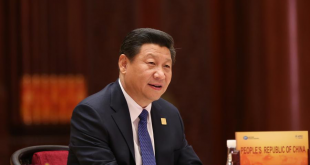Published: March 26,2024
By EDITH MUTETHYA

Workers rest during a break at the Eastern Industrial Park, a Chinese-built complex, in Dukem, Ethiopia, on Feb 16. LI YAHUI / XINHUA
As Africa strives to industrialize, the ability to bring prosperity, create jobs and improve incomes for all will be greatly helped by Chinese investments in the continent, as well as helping deepen the relationship between the two partners, experts say.
According to McKinsey & Company, a US multinational strategy and management consulting firm, Africa only represents 2 percent of total manufacturing output globally and only 0.6 percent of imports of manufactured goods globally come from the continent.
Experts believe that through cooperation platforms like the Forum on China-Africa Cooperation and the Belt and Road Initiative, Africa’s industrialization dream could become a reality.
According to Humphrey Moshi, director at the Center of China Studies in Tanzania, through the BRI, the level of industrialization in Africa has increased in terms of its contribution to the gross domestic product.
“In Tanzania, for example, 60 percent of Chinese investments are in manufacturing,” he said.
Ezechiel Nibigira, former Burundi minister of foreign affairs, said Africa has manpower that is young and not expensive, terming it a good opportunity for Chinese enterprises to establish industries in the continent.
Maged Aboulmagd, former deputy assistant minister in Egypt’s Ministry of Foreign Affairs, said for the China-Africa partnership to move wider and upward, the parties might have to consider adding industrialization to their priorities.
Creating value
He specifically suggested transforming Africa’s agriculture through agro-industry, noting that it would link two sectors together, create value and jobs, get Africa in the global supply chain and boost food security, consequently reducing poverty and creating growth.
“The recent establishment of industrial parks in Tanzania and in Egypt and elsewhere are excellent starting points in this direction,” Aboulmagd said.
He said Africa’s manufacturing sector has not only been minimal in its contribution to the continent’s GDP and employment but it’s also concentrated in only 10 countries that dominate almost 80 percent of Africa’s manufacturing activity.
“This sector needs a healthy dose of investments not only in the food sector but also in products like beef and fish processing, leather and cocoa to mention a few,” he said.
“Manufacturing needs to take hold in African economies, and there’s no better partner to co-invest in our drive for industrialization than China.”
Sheriff Ghali Ibrahim, director of the Center for Contemporary China Studies at the University of Abuja in Nigeria, said he hopes China can help Africa increase manufacturing capacity to develop an export-led economy.
Noting that the African Growth and Opportunity Act, a trade agreement between the US and the sub-Saharan African countries, expires next year, Sheriff suggested the establishment of a similar pact between China and Africa.
With the African population projected to hit 2.5 billion by 2050, Sheriff said China could help Africa to increase food production through agricultural mechanization to feed the expected high population.
According to the Chinese Academy of Agricultural Sciences, because of new technologies and approaches such as biotechnology, digitalization, artificial intelligence, and nanotechnology, there are more options available to make agriculture more productive and water and land use more efficient, improve diet structure, and reduce waste and greenhouse gas emissions.
China Daily
 Africa -China Review Africa -China Cooperation and Transformation
Africa -China Review Africa -China Cooperation and Transformation
